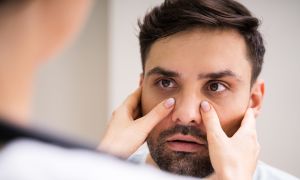Drug allergies are not inherited—they are acquired during someone's life. Typically, to develop a true allergy to a medication, someone must be exposed to that drug multiple times. However, he or she may be more likely to develop an allergy if other members of the family are allergic to similar types of medications.
Is anyone in your family allergic to a specific drug or type of drugs? If so, be warned: You may well have inherited an allergic tendency and should be careful what drugs you take. May sure you let your doctor know about any history of drug allergies in your family.
Continue Learning about Allergies
Important: This content reflects information from various individuals and organizations and may offer alternative or opposing points of view. It should not be used for medical advice, diagnosis or treatment. As always, you should consult with your healthcare provider about your specific health needs.





